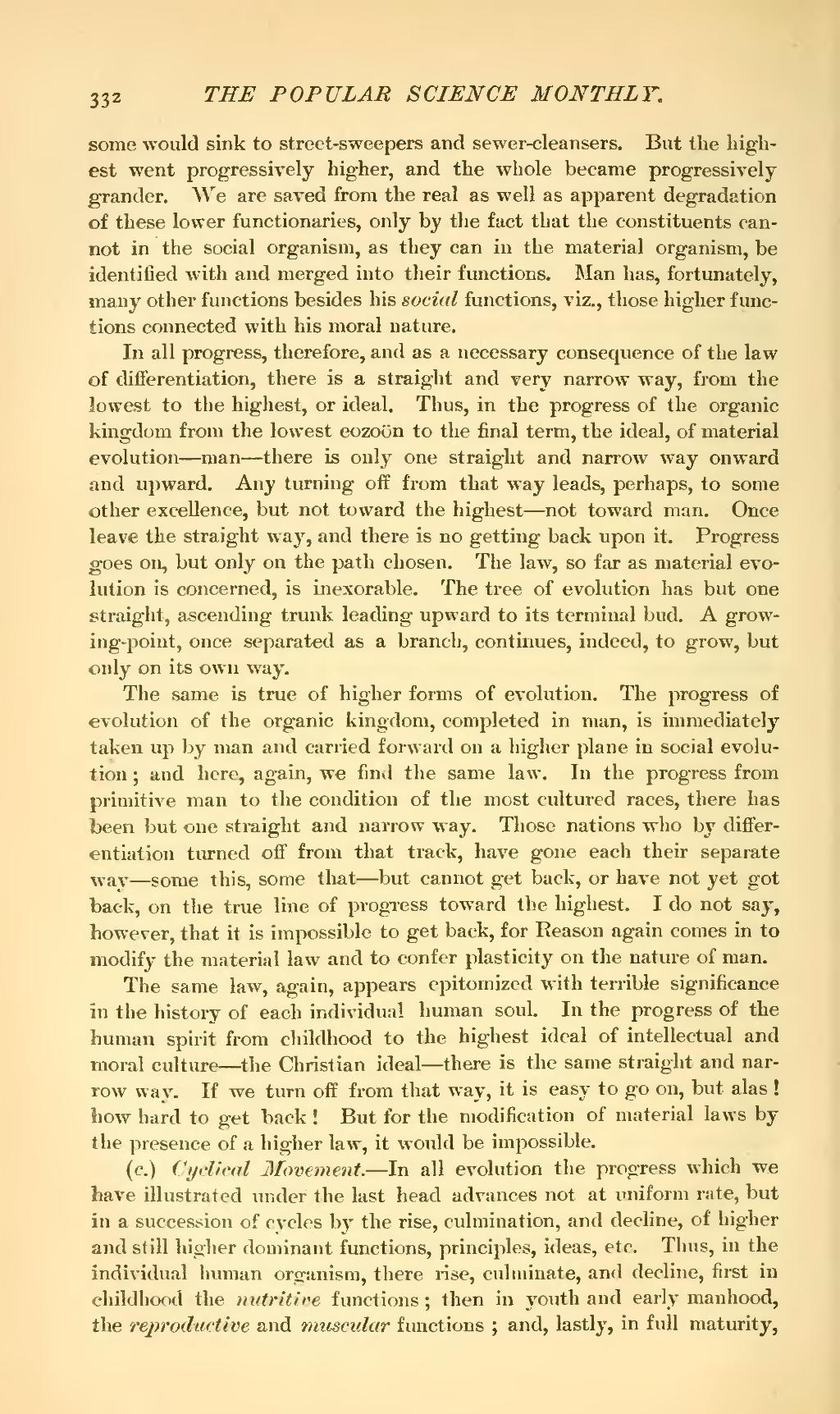some would sink to street-sweepers and sewer-cleansers. But the highest went progressively higher, and the whole became progressively grander. We are saved from the real as well as apparent degradation of these lower functionaries, only by the fact that the constituents cannot in the social organism, as they can in the material organism, be identified with and merged into their functions. Man has, fortunately, many other functions besides his social functions, viz., those higher functions connected with his moral nature.
In all progress, therefore, and as a necessary consequence of the law of differentiation, there is a straight and very narrow way, from the lowest to the highest, or ideal. Thus, in the progress of the organic kingdom from the lowest eozoön to the final term, the ideal, of material evolution—man—there is only one straight and narrow way onward and upward. Any turning off from that way leads, perhaps, to some other excellence, but not toward the highest—not toward man. Once leave the straight way, and there is no getting back upon it. Progress goes on, but only on the path chosen. The law, so far as material evolution is concerned, is inexorable. The tree of evolution has but one straight, ascending trunk leading upward to its terminal bud. A growing-point, once separated as a branch, continues, indeed, to grow, but only on its own way.
The same is true of higher forms of evolution. The progress of evolution of the organic kingdom, completed in man, is immediately taken up by man and carried forward on a higher plane in social evolution; and here, again, we find the same law. In the progress from primitive man to the condition of the most cultured races, there has been but one straight and narrow way. Those nations who by differentiation turned off from that track, have gone each their separate way—some this, some that—but cannot get back, or have not yet got back, on the true line of progress toward the highest. I do not say, however, that it is impossible to get back, for Reason again comes in to modify the material law and to confer plasticity on the nature of man.
The same law, again, appears epitomized with terrible significance in the history of each individual human soul. In the progress of the human spirit from childhood to the highest ideal of intellectual and moral culture—the Christian ideal—there is the same straight and narrow way. If we turn off from that way, it is easy to go on, but alas! how hard to get back! But for the modification of material laws by the presence of a higher law, it would be impossible.
(e.) Cyclical Movement.—In all evolution the progress which we have illustrated under the last head advances not at uniform rate, but in a succession of cycles by the rise, culmination, and decline, of higher and still higher dominant functions, principles, ideas, etc. Thus, in the individual human organism, there rise, culminate, and decline, first in childhood the nutritive functions; then in youth and early manhood, the reproductive and muscular functions; and, lastly, in full maturity,

